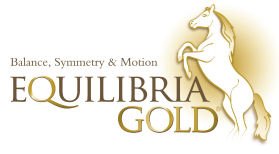A recognised qualification.
To become a qualified equine therapist I trained with the Institute of Complementary Animal Therapies and passed my Equine Sports Massage Diploma with distinction in 2007.
The ICAT is an established, reputable training center, based in Devon, with international status and a nationally recognised training center with the OCN London Awards. The course was fully comprehensive and comprised two years of study including on-site training as well as extensive remote theory assessments and hands-on practical case studies.
Continual Professional Development
To ensure I keep my skills up to date with the latest science-backed practices, techniques, equipment, and legislation, I undertake regular CPD with a minimum 20 hours CPD per year. I love to keep learning and finding ways to further enhance the services I can offer my clients to achieve optimum results with the horses I work with.
Please also view the third-party accreditations below to verify my qualifications, experience, code of practice, and insurance.
Third-party accreditations for added peace of mind.
-

The Institute of Registered Veterinary and Animal Physiotherapists (I.R.V.A.P)
-

The Association of Complimentary Animal Therapies (A.C.A.T.)
A lifetime of real-life experience.
In addition to my “formal” Equine Therapist qualifications, I also have a lifetime of experience with horses and ponies from taking my first riding lesson around the age of 10 to owning my first pony a year later. Over the subsequent years of Pony Club rallies and training camps, through to BSJA and BHS competitions, I have experienced the highs and lows of horse care and ownership which have provided me with valuable insight to support me with the massage therapy I deliver. Being a keen eventer in my late teens and early twenties, a tragic event cause my competition mare, Lily, to have recurring muscle problems that, without regular therapy, caused her great discomfort and unable to compete.
Her pain was expressed by refusing to step over a tiny X-pole let alone jump, which was most out of character. Not a qualified therapist myself at the time, I sought the skills and advice of a trained Equine Therapy Professional who supported me to ensure Lily remained comfortable, fit, and happy allowing us to continue to enjoy years of training and competition. Seeing the significant health benefits the qualified equine therapist could provide for Lily influenced my decision to train and become qualified myself so that I too could help others achieve success and wellbeing for their equine partners, whatever their goals might be.

